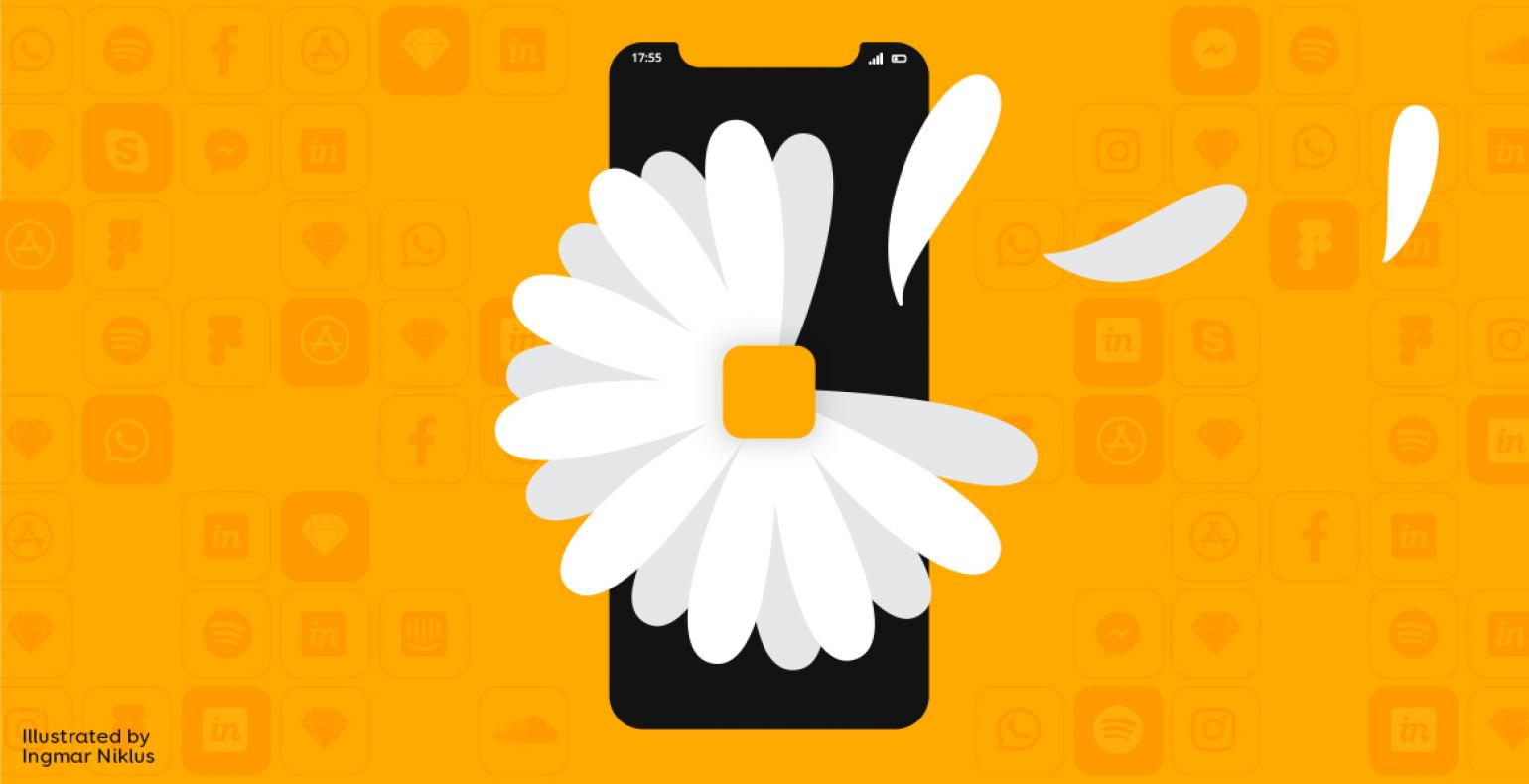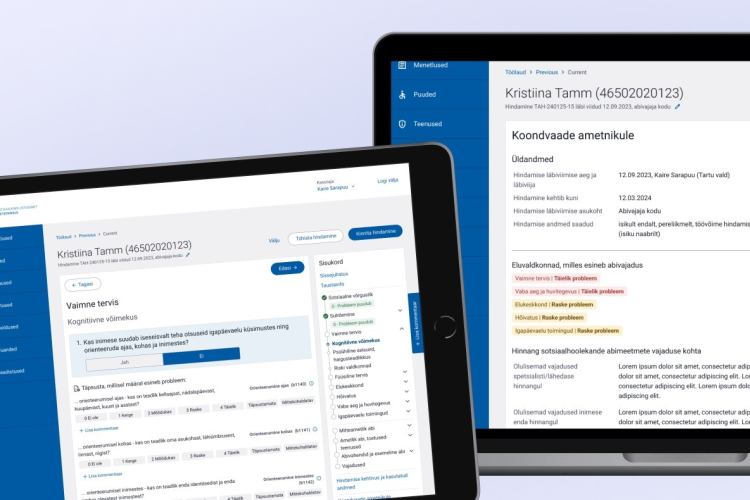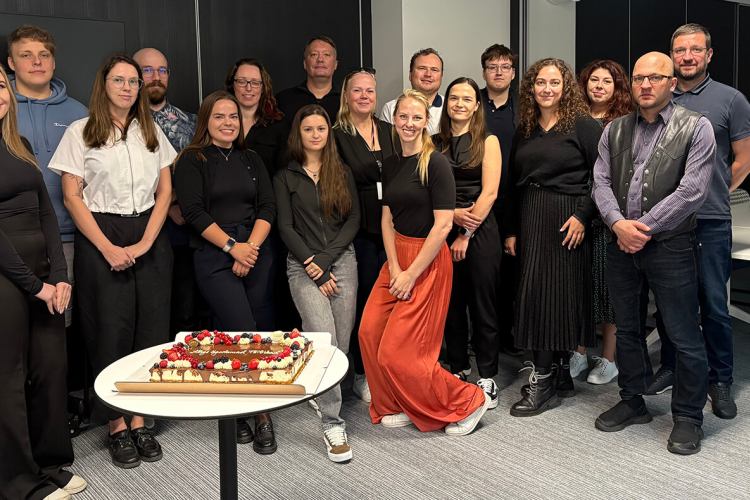Do I need an app or not?
An average smartphone user spends 3.5 hours a day on their device. 80% of this time is spent on using applications or apps, and the rest is spent on browsing the web. This data is a good illustration of the potential of mobile platforms in marketing, developing client relationships, and growing your brand.
YOU ALREADY HAVE A WEBSITE. DOES YOUR COMPANY NEED AN APP AS WELL?
The following are the main reasons why an app can be beneficial and useful.
CLIENT COMFORT
It only takes a tap of the finger to open an app. In order to navigate to a website, however, one has to open the mobile browser, enter the address or use a search engine to find your site. Although the latter does not have too many extra steps, a client will feel better if they can start communicating without any intermediate stages and distractions.
ADDITIONAL POSSIBILITIES
Options such as a list of phone contacts, making calls and sending messages, camera, GPS, push notifications and more can be used in mobile apps, while it is more complicated or even impossible in to add some of these functions to websites. Therefore, apps offer many possibilities that can be used to improve the user experience.
APPS SUPPORT PROMOTING THE BRAND IMAGE
Apps support marketing and help with promoting the company’s brand image. Your brand’s logo on the user’s mobile desktop is a great advertisement for your enterprise, because it flashes before the client’s eyes dozens of times a day. This can be considered a very effective frequency.
PUSH NOTIFICATIONS
There was already mention of using mobile device functions to improve the client experience, but they are also useful in marketing. Some of the best examples of this are push notifications, which can be used to notify the client easily, quickly and directly about any upcoming or ongoing campaigns, new products and services. This function, of course, should not be overused, because it will, most likely, get annoying in the end and ruin the user experience.
DIGITAL MEMBERSHIP CARDS
When a dozen years ago there was talk of the ID-card making your handful of physical membership cards redundant, the trend of today is digital membership cards. It is easier for the user to check their bonus points and other benefits of client loyalty programmes on the go or at home straight from the app, as opposed to visiting a website or a service point.
OFFLINE USE OPTION
Another big advantage of apps is the possibility of a built-in offline mode, which allows for saving a user’s data in case the Internet connection is lost—this way, the client can continue using the app’s online functions from where they left off.
MOBILE APPS COMPLEMENT WEBSITES
Websites usually work as landing platforms for clients looking for information. Apps, however, offer a more personal approach and help the client feel appreciated.
WHEN IS CREATING AN APPLICATION NOT WORTHWHILE?
IF YOUR APP WOULD MOSTLY OFFER STATIC INFORMATION
The most successful apps offer constant content and function updates. Apps that are never or rarely updated are often fated to be uninstalled.
IF YOU VIEW APPS AS A ONE-TIME INVESTMENT
As mentioned in the previous section—great apps are regularly updated, which spends resources. Unfortunately, it is not guaranteed that a well-tested and initially working app is functional a year after. In addition to technical deficiencies that may emerge over time, it is also important to listen to and take into account user feedback. A successful app is an ongoing investment.
IF YOUR CLIENTS DO NOT USE APPLICATIONS
If your clients are people who are less knowledgeable when it comes to technology or, perhaps, do not use smartphones very often. A good example of this client group is the older generation—and although more and more elderly people have started to use smartphones (I know older people who stay far away from new gadgets, but I have also met seniors who are keen on keeping up with the ever-changing world of technology), their percentage is still small when compared to the younger generations.
IF YOUR APPLICATION WOULD NOT ADD VALUE TO YOUR WEBSITE
If your app does not add value to your existing website and only repeats the information displayed there. If your company already has a well-functioning website, where it is possible to get all the necessary information and an app would simply function as a so-called bookmark of the website, making an app would most likely not pay off.
IF YOUR APPLICATION WOULD NOT SOLVE A SPECIFIC PROBLEM
If your app would not solve a certain problem and just be general. Mobile apps ought to make the client’s life easier and offer added value, such as being focused on delivering a function or a personalised service to the client.
WHAT TO KEEP IN MIND IN CREATING A GOOD APPLICATION?
A good app:
...solves a problem, is focused on one core function or service, and makes the user’s life easier.
...has an elegant design; can be used easily and intuitively.
...contains dynamic information, has a personal, user-based approach and is customisable.
...is fast and works smoothly.
...is capable of offering an excellent user experience even if the client loses their Internet connection.
...is thoroughly tested and stable.
...is free for the user (but may have a premium version available for a fee).
...contains a feedback channel.
...has analytics tools that help measure and predict user behaviour to offer clients better service and user experience.
...is modern and updated to continually ensure quality.
In our next post, we will discuss the opportunities Native and cross-platform apps offer.
LOOKING FOR A MOBILE DEVELOPMENT PARTNER?
A well thought out, implemented and marketed app is a powerful tool for developing a brand image, increasing your customer base and consolidating customer loyalty.
If you think that a mobile application would be a reasonable investment for you, contact us.
We offer full mobile development (Android, iOS, Javascript) and a wide variety of UX-services.







